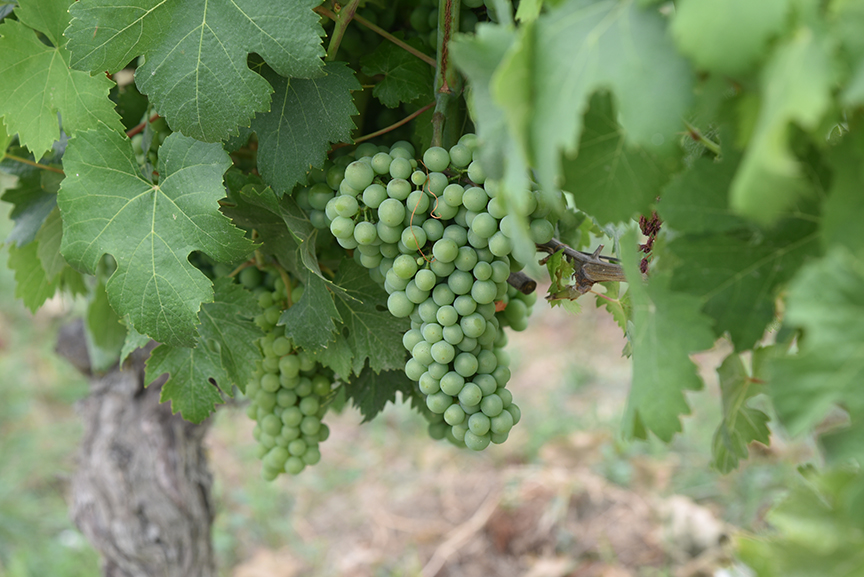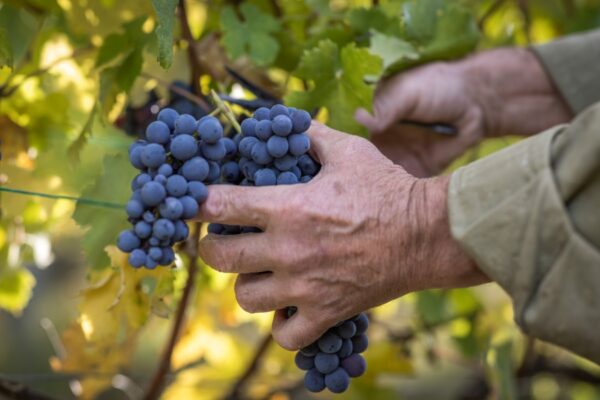• Wines
Arneis, the origin of the word (from a philologist’s perspective)
Reading time in

Above: Arneis grapes ripening earlier this summer on the Tenuta Carretta estate.
As part of my ongoing research into Arneis and its history, I’ve been taking a close look at the etymology of the ampelonym — the origin of the grape name.
Of course, one of the first works I turned to was Ian D’Agata’s excellent Native Grapes of Italy (University of California Press, 2014).
In his entry for Arneis, he writes:
“The name Arneis derives from Renexij, the ancient name of the locality Renesio di Canale: in tie this morphed into Arnesio (used at the beginning of the twentieth century), and finally, Arneis.”
The Italian wine world owes Ian an inestimable debt for his landmark work. With its publication, he filled a longstanding lacuna in Italian ampelography, providing English-speaking wine professionals with an invaluable tool for achieving a greater and deeper understanding of Italian viticulture.
I have the utmost respect and admiration for him and his work and the few times I’ve had the opportunity to taste with him, I’ve been wholly impressed by his abilities as a taster and his mellifluous style in describing wine.
But when it comes to the origins of the grape names, I have occasionally found the entries in Native Grapes to rely on secondary and tertiary sources.
The term arneis begins appearing in a number of Italian-Piedmontese dictionaries by the 1830s (just do a Google books search with a custom time frame and you’ll find the same results I did).
In fact, arneis is a dialectal inflection of the Italian arnese, which in turn comes from the Germanic hernest, the same word that gives us harness in English. (According to the Oxford English Dictionary, “it seems probable that a general sense of ‘equipment, furniture, outfit, gear, tackle,’ is the original [meaning]. This aligns with the meaning of arneis and arnese below.)
Most philologists agree that arnese, which is preceded by the Late Latin arnesius came to Italian (and Piedmontese) via the Occitan arnes (or arneis).
In all instances, the meaning of the word and its usage can be rendered in English as tool or tools, implement or utensil (the origins of harness follow a parallel path). In a broader sense, historically, in Piedmontese and Italian, the term has denoted equipment or provisions, as in the equipment needed to run a farm, for example. There is ample documentation of the above. It can also be used to refer to kitchen and household equipment.
As far back as the 1830s, lexicographers point to the Piedmontese expression mal an arneis, meaning literally poorly equipped and figuratively poorly dressed or poor. It’s often applied to a person deemed to be crude or lacking refinement.
But the turn of phrase is not unique to Piedmont. In fact, it probably comes from the Italian usage, mal in arnese (based on etymologic entries I’ve checked, the Italian expression probably precedes the Piedmontese).
Based on the above, it seems unlikely to me that arneis comes from the place name that Ian (and so many Piedmontese winemakers) point to. I’m also troubled by the thought that Renexij “morphed” into Arnesio and then into Arneis. It’s possible that there was a metathetical transformation of the word (where vowels shift position in a word’s evolution). But the fact that arnesius appears in Medieval Latin would seem to undermine the hypothesis that the place name “morphed” into arnesio (which is probably the Italian inflection of the Latin).
As Nietzsche preached, the philologist should always look behind the “sacred” texts. In this case, a closer look at the word’s Romance legacy would seem to indicate that commonly accepted origin (accepted at least among winemakers) is improbable.


